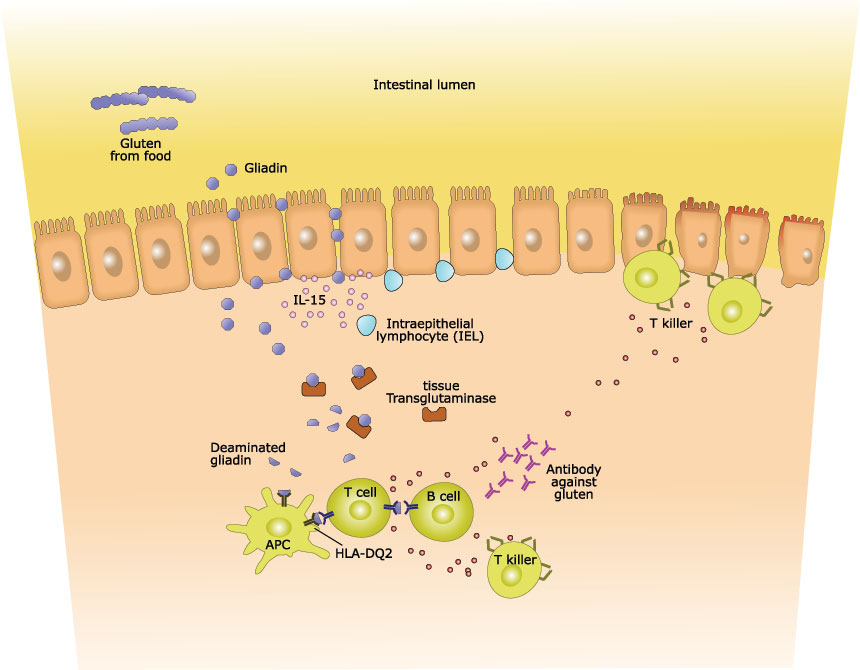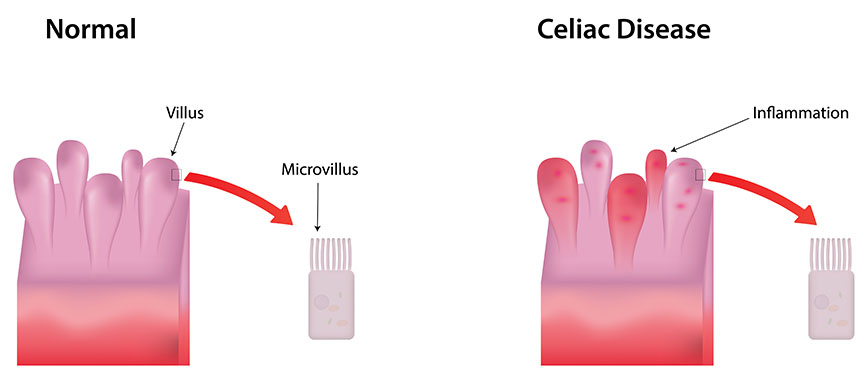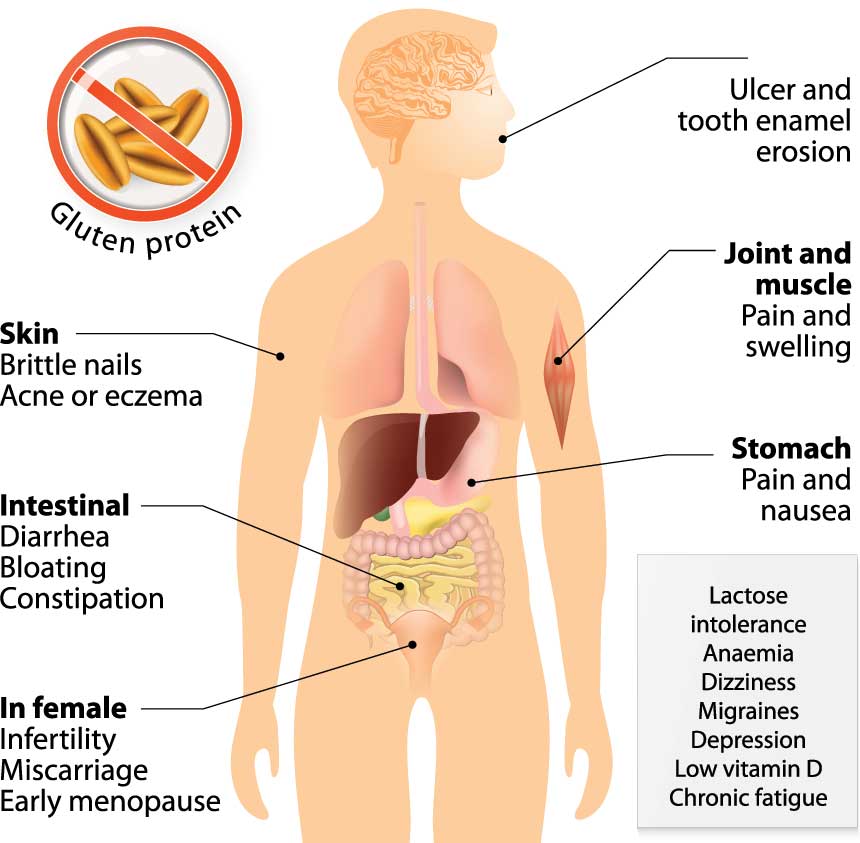What is refractory Celiac Disease?
The aberrant immune response causing celiac disease is triggered by the consumption of gluten. In most cases, this immune response stops after the complete removal of dietary gluten, and the intestinal lining is gradually restored. As the intestine returns to a healthy, normal state, the celiac disease symptoms decrease and the adequate absorption of nutrients [...]






